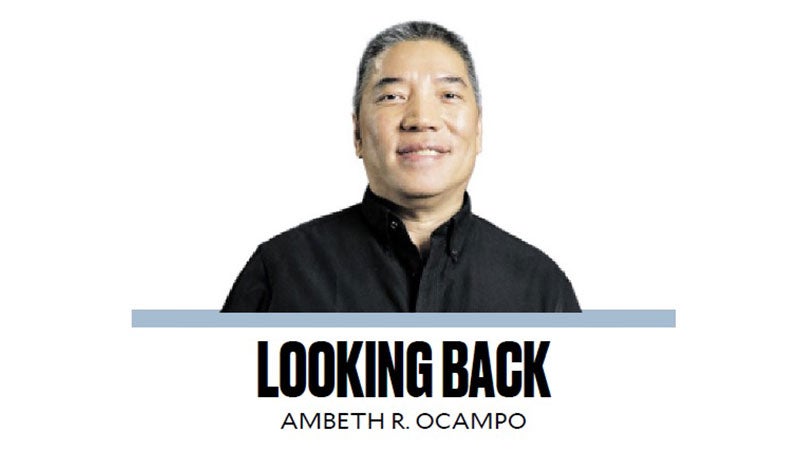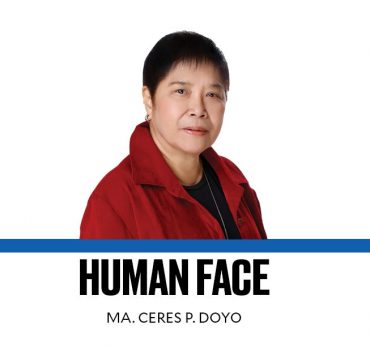Assassination and election fraud in 1935

There is a saying that nobody loses an election in the Philippines because losers always claim they were cheated of victory. This goes back to the 1897 snap election at Tejeros, which saw the election of Emilio Aguinaldo as president of a revolutionary government, replacing the Katipunan. Andres Bonifacio was elected director of the Interior during the Tejeros Convention, but when his qualifications were questioned, he lost his cool and stormed out. On March 23, 1897, Bonifacio and 44 others affixed their signatures to what is known as the “Acta de Tejeros,” which declared the snap elections disorderly and marked by fraud. This is probably the first significant electoral protest in Philippine history. Aguinaldo took his oath the same day, leading to two revolutionary governments: the Katipunan led by Bonifacio and the new government led by Aguinaldo.
The tables turned on Aguinaldo in September 1935. In the race for the presidency of the Philippine Commonwealth, Manuel Luis Quezon garnered 695,332 votes in a national election that trumped Aguinaldo’s 179,349 votes. The third runner-up was Gregorio Aglipay with 148,010 votes, a loss he willingly accepted. It was said that after casting his vote, Aglipay spent the rest of the day cooling in a cinema. The dark horse in the Commonwealth elections was Pascual Racuyal, who amassed 158 votes (that surely included his own). Undeterred, Racuyal ran and lost in every presidential election until 1986, when the Comelec declared him a nuisance candidate.
Aguinaldo’s loss in 1935 becomes relevant today in the face of Vice President Sara Duterte’s antics, which include a post-dated threat on the life of President Marcos, First Lady Liza Araneta-Marcos, and the Speaker of the House. Aguinaldo’s supporters gathered nightly at his home in Kawit to protest what they called election fraud. Police monitored these meetings and raw intelligence gathered pointed at a mass action or even an assassination plot against Quezon.
On this topic, there is much to be had in the Quezon papers at the National Library of the Philippines. Unfortunately, time and climate have not been good to paper in Manila, so much of the original Quezon papers are now faded and illegible. However, all is not lost, because the only clear copy of these documents is preserved in microfilm at the Bentley Historical Library at the University of Michigan in Ann Arbor.
I dipped into the Quezon papers searching for his views on history, but got derailed when I came across confidential reports from Quezon’s spies, or “tiktik,” in the Aguinaldo camp. One from a certain “PP” narrated: “Since the night of the election day, hundreds of people, most of whom are fanatical followers of the General, have been going to his house especially at night, expressing their sympathy with him and indignation at the result of the election. The General is very disappointed for he believed that the thousands who used to welcome him in his campaign were all his voters.”
A curious reference to the Nalundasan murder in Ilocos Norte caught my eye: “His fanatical followers urge him to lead a revolution but he tells them to wait until we have a Republic. When told by some to kill you in the Nalundasan fashion, he said: ‘Iyan ay ginagawa hindi sinasalita. Mahusay ang lalaking iyon na umutas, malinis.‘ (That is executed, not talked about. The man who accomplished this did it cleanly.)” Thus, others understood it to mean that if someone would do the job in that way, the General would approve it.
“So, I heard the secret determination of some of his followers to do the job at a time when you least expect it, and when you or your guards are unaware. The General makes his men believe that you will not sit and that something must be done to prevent your inauguration. So, the best way is to always take some precautions because no one can tell what his fanatical followers will do next. To be careful is not cowardice for no one will doubt your courage which has been proven on many occasions.”
PP informed Quezon of Aguinaldo writing to the president of the United States asking to have the election declared null and void. PP added that Aguinaldo planned “a tour of the Islands and pretend to organize the party but in reality, according to our confidential caucus, is to talk to all his loyal men to make them ready at a moment’s notice to obey his order to make a demonstration or trouble to prevent the inauguration, if his protest about the alleged frauds is not considered.”
Assuring Quezon of continued reports, PP concluded: “The wife of the General is very angry. She says she will spend any amount to prevent you from sitting at Malacañang. That, of course, encourages the fanatics even more. Many of those who go to the General’s house are armed with “paltic,” revolvers, big knives, and daggers. Some of them may be only making a show or gesture but it is better to have a watchful eye on any stranger, for no one can tell what will happen when irresponsible fanatics receive implicit consent and encouragement from your enemies.”
It is clear from the archive that Quezon was 10 steps ahead of Aguinaldo. The Old General was on unfamiliar ground against any enemy who used politics, not guns and knives.
————–
Comments are welcome at aocampo@ateneo.edu
Ambeth is a Public Historian whose research covers 19th century Philippines: its art, culture, and the people who figure in the birth of the nation. Professor and former Chair, Department of History, Ateneo de Manila University, he writes a widely-read editorial page column for the Philippine Daily Inquirer, and has published over 30 books—the most recent being: Martial Law: Looking Back 15 (Anvil, 2021) and Yaman: History and Heritage in Philippine Money (Bangko Sentral ng Pilipinas, 2021).


















Flirting with green virtue-signaling